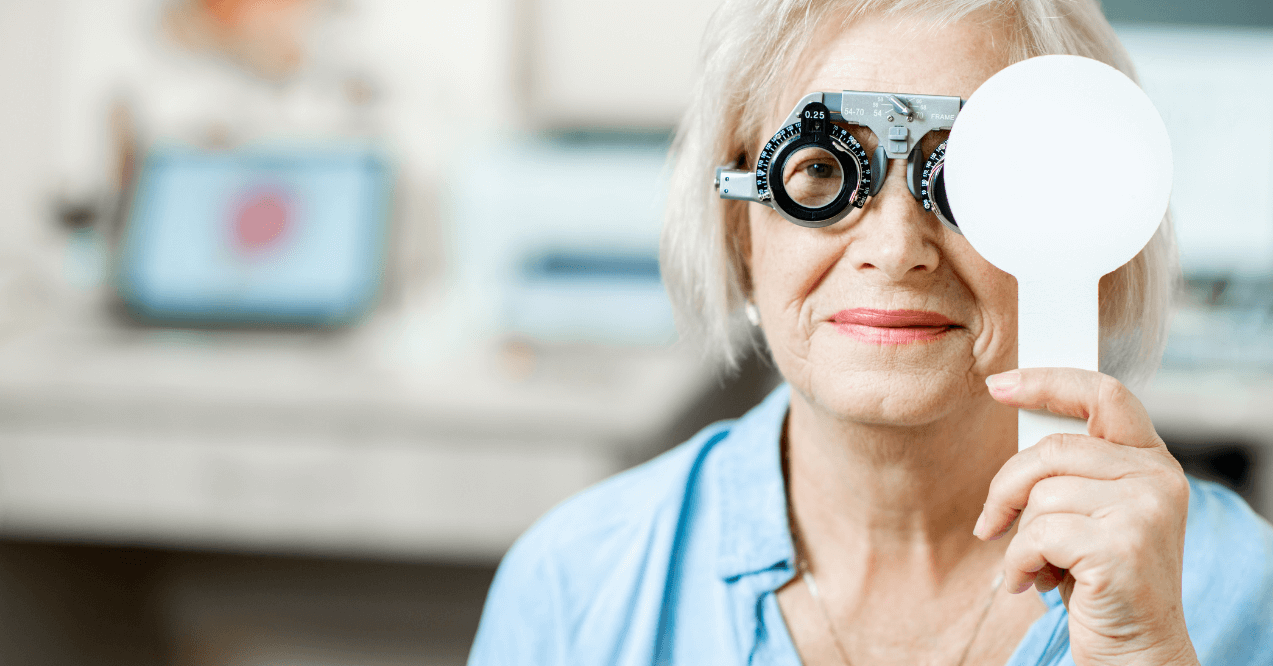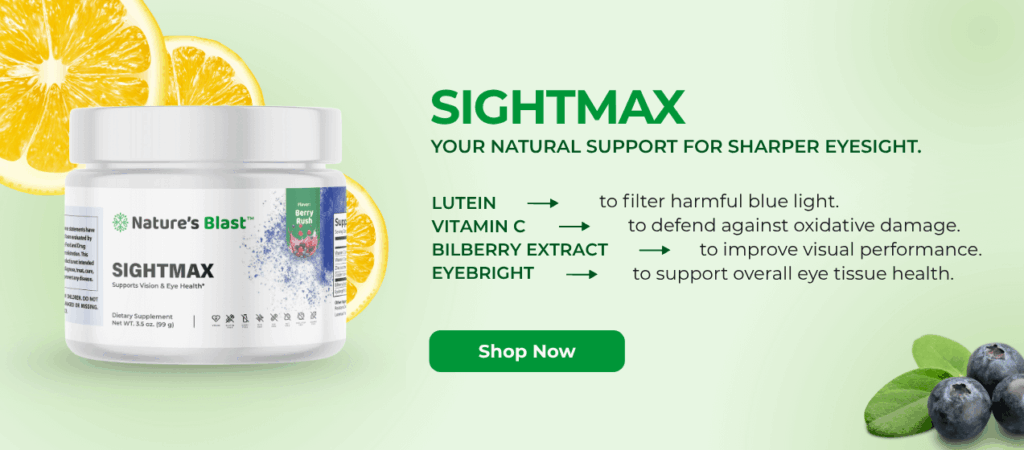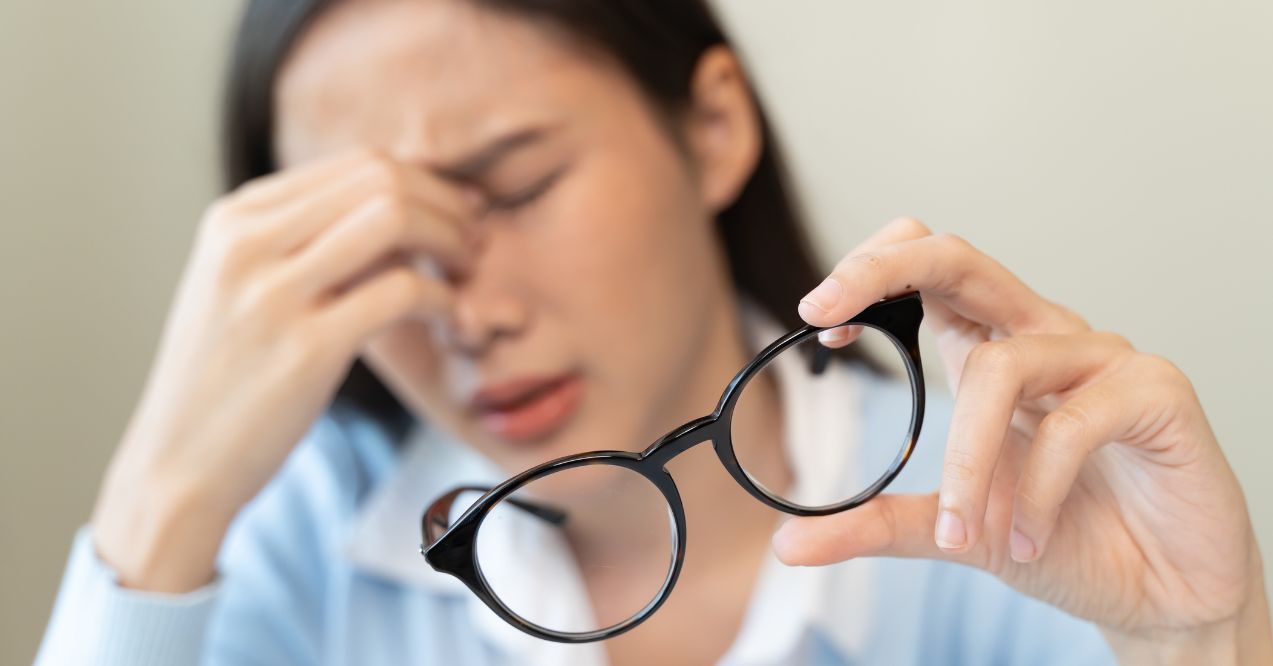Does Your Eyesight Improve with Age? Myth or Reality
Medically reviewed by our experts


As the years go by, many people ask: does your eyesight improve with age? While vision often changes naturally, true long-term improvement is rare. Most of the time, eyesight shifts because of gradual structural changes in the eye that influence clarity and focus.
In certain situations, however, some people notice temporary periods of clearer sight. These brief improvements can raise questions: what causes them, and do they signal something more serious? In this article, we’ll look at how vision changes with age, what might cause unexpected improvements, and how to support long-term eye health.
How Does the Eye Change as You Age?
Our eyes, like the rest of our body, experience natural changes as we age. These transformations begin in our 40s and continue throughout our lives, affecting different parts of our visual system in unique ways.
Here’s how different parts of your eye change over time:
- The Lens – Your eye’s lens becomes less flexible as you age. This natural change makes it harder to focus on close objects. You might find yourself holding books or menus at arm’s length to see them clearly – a common experience many people notice as they enter their fifth decade.
- The Pupil – The dark center of your eye becomes smaller and less responsive to light changes. You may need more light to read comfortably, and adapting to darkness might take longer than before. Many people find they need brighter lighting for tasks like reading or detailed work.
- Tear Production – Your eyes might feel drier because tear production often reduces with age. This can make your eyes feel irritated more easily, especially when looking at screens or spending time in air-conditioned environments.
- The Retina – This light-sensitive layer at the back of your eye becomes thinner over time. You might notice that distinguishing between similar colors, particularly in the blue-green spectrum, becomes more challenging. Reading fine print or seeing details in low light may require more effort.
- Peripheral Vision – Your side vision may change subtly as you age. This natural narrowing of the visual field happens so gradually that many people don’t notice it until their 60s or 70s. Regular eye check-ups can help monitor these changes and ensure your eyes stay as healthy as possible.
Does Your Eyesight Actually Improve with Age?

Does your eyesight improve with age? You might have heard stories about people needing their reading glasses less as they get older. While these stories are real, they don’t mean your vision is actually getting better. Instead, these changes usually happen because of natural shifts in your eye structure.
Imagine this common situation: after years of using reading glasses, you suddenly realize you can read the morning paper without them. It may feel like your eyesight has improved, but in truth, the shape of your eye’s lens is changing shape. This shift can temporarily sharpen near vision, even though the overall aging process continues.
The lens in the eye functions much like a camera lens, bending light to bring images into focus. With age, the lens often becomes slightly more curved, which alters how light is directed to the back of the eye. While this can make certain objects look clearer for a short time, it’s not a lasting improvement in eye health.
What Could Make Your Vision Suddenly Clearer?
Several natural changes in your eyes can create periods of unexpectedly clearer vision. Understanding these changes helps explain why you might suddenly find yourself reaching for your glasses less often.
Here are the main reasons you might experience temporary improvements in your vision:
- Changes in Lens Shape – Your eye’s natural lens can change its curve as you age. Think of it like a window that slightly shifts its position – sometimes this shift accidentally puts things into better focus. This might help you see certain distances more clearly for a while.
- Lighting Conditions – Your eyes might work better in different lighting as you age. Some people notice they can read more easily in bright daylight, while others find their vision is sharper in slightly dimmer conditions. This happens because your pupils adjust differently to light as you get older.
- Second Sight Phenomenon – Some older adults experience what’s traditionally called “second sight” – a temporary period where close-up vision becomes clearer without reading glasses. While this might seem like a welcome improvement, it’s actually a sign that your eye’s lens is continuing to change.
- Daily Vision Fluctuations – Vision may vary throughout the day due to fatigue, hydration, or screen time. When this happens, people often ask, why is my eyesight getting worse?, though these fluctuations are usually temporary and normal.
What to Do If You Experience Sudden Vision Improvements

Noticing that you can suddenly read without your usual glasses might feel like a welcome change. However, unexpected changes in your vision – even positive ones – deserve attention and proper care.
Here’s what you should do if you notice sudden improvements in your vision:
- Schedule an Eye Check – Even if your vision seems better, it’s important to have your eyes examined. Regular eye tests help track changes in your vision and catch any potential concerns early.
- Keep a Vision Journal – Note when you first noticed the changes and any other shifts in your vision. Include details about the times of day when your vision seems clearest and which activities show the biggest difference in visual clarity.
- Continue Using Your Current Glasses – Don’t stop wearing your prescribed glasses until you’ve had your eyes checked. Sudden vision changes can be temporary, and your eyes still need their usual support.
- Pay Attention to Other Changes – Stay alert to any additional changes in your vision, such as differences in how you see colors, changes in your night vision, variations in distance vision, or any new eye strain you experience.
- Track Your Daily Activities – Make note of any lifestyle changes that might affect your vision, such as changes in your screen time, reading habits, or general daily routine. These details can help eye care professionals better understand your vision changes.
If you’ve been wondering “Does wearing glasses make your eyesight worse?“, rest assured that glasses do not weaken your eyes. In fact, they correct your vision to make tasks like reading and driving easier, but they do not affect the long-term health of your eyes. Always seek professional advice if you experience sudden vision changes.
Can Your Eyesight Get Better and How to Do It?

Learning how to get better eyesight starts with understanding that good vision depends on overall eye health. While we can’t reverse natural age-related changes, we can take steps to support our eye health and maintain clear vision.
Eat the Right Foods
Your eyes benefit from a colorful, nutrient-rich diet. Dark leafy greens, bright orange vegetables, and fatty fish support eye health. Include foods rich in vitamins A, C, E, zinc, and omega-3 fatty acids in your daily meals. Blueberries, spinach, carrots, and salmon are excellent choices for eye-friendly nutrition.
At the same time, be mindful of the worst foods for eye health. Sugary drinks, processed meats, fried foods, and refined carbohydrates may contribute to oxidative stress, poor circulation, and inflammation that affect vision over time. Limiting these options helps your nutrient-rich diet work even harder to protect your eyes.
Eye Exercises
Simple eye exercises to improve vision can help alleviate eye strain and maintain eye muscle flexibility. Try the 20-20-20 rule: every 20 minutes, look at something 20 feet away for 20 seconds. Focus switching between near and far objects can help maintain your eyes’ natural focusing ability.
Physical Activity
Regular physical activity supports your eye health by improving blood circulation throughout your body, including your eyes. A brisk daily walk, swimming, or gentle yoga can make a significant difference in maintaining healthy vision.
Protect Your Eyes from UV Radiation
Your eyes need protection from harmful UV rays all year round. Choose sunglasses that offer 100% UV protection, and wear a wide-brimmed hat when outdoors. This protection is essential even on cloudy days, as UV rays can penetrate cloud cover.
Including Supplements For Vision
Supporting your eye health through lifestyle changes can make a meaningful difference. While the natural aging process continues, you can take steps to maintain your eye health. Supplements such SightMax offers a comprehensive approach with research-backed ingredients like Lutein, Zeaxanthin, and Vitamin E. These natural compounds have been valued for their role in supporting eye health.

Lutein and Zeaxanthin work together as natural antioxidants that can help maintain healthy eye tissue. These nutrients naturally accumulate in the eye, where they support clear vision and help maintain eye health as you age. Vitamin E adds another layer of support to help maintain your eye health.
When combined with a healthy diet, regular exercise, and proper eye protection, SightMax could complement your daily eye care routine.
Conclusion
So, does your eyesight improve with age? While some people might experience temporary moments of clearer vision, these changes don’t represent true vision improvement. Instead, they signal natural changes happening within your eyes.
The key to maintaining healthy vision lies in taking proactive steps throughout your life. By following good eye care practices, protecting your eyes from UV radiation, staying physically active, and maintaining a nutrient-rich diet, you can support your eye health as you age. Remember that any sudden changes in your vision deserve attention from an eye care professional, ensuring your eyes receive the care they need.
While natural vision improvement is rare, you can support your eye health through proper nutrition, regular exercise, and eye care practices. Any sudden vision improvements should be evaluated by an eye care professional.
What seems like vision improvement is usually a temporary change in your eye’s lens shape. This natural shift can temporarily help with close-up vision but doesn’t indicate actual improvement in eye health.
No, your eyeball doesn’t grow larger with age. However, the internal structures of your eye continue to change throughout your life, affecting how you see and how your eyes focus on objects.
You can support eye health through a nutrient-rich diet (leafy greens, carrots, fatty fish), regular exercise, eye protection from UV rays, proper rest, and eye-friendly habits like the 20-20-20 rule. Supplements like lutein and zeaxanthin can also provide added support.
FAQ
References



